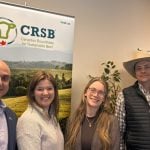If you’re like me and you prefer to learn things on your own terms, Google Alerts are an eye-opening exploration into a deep well of information, the bounds of which seem only to be limited by imagination. This was my experience, anyway.
This is not a new service. Google Alerts have been around for a long time. I used it many years ago and still have some old alerts setup, including one for my own name. They yield results once in a while, but the emails the alerts generate have become white noise in my inbox.
Read Also

Avoid these thought traps when investing
Investing for Fun and Profit: Let’s review a list, by renowned fund manager Peter Lynch, of the most dangerous things that stock market investors can say to themselves, or to others.
I don’t look at them anymore, except for the ones my name triggers. I’m usually too terrified to open those immediately. I’ll take a peek when I’m feeling brave enough to handle potential criticism (I received an alert for an op-ed written by a Canadian senator who mentioned me by name. I didn’t read it, but my wife did. That’s all I’ll say).
The idea is simple. Search for Google Alerts. Once there, determine what you want to learn about, setup an alert with Google and it will catch news items that use that word. Every morning (or whatever time you set it to send), you will receive an email containing related links and headlines.
I setup alerts for “soybeans,” “pulses Canada,” “soybeans Canada,” “dry beans,” and, you guessed it, “dry beans Canada.” The next morning, having completely forgotten the hijinks I got up to the night before, I had numerous emails containing stories from across Canada and the globe.
I spent hours reading articles I would not have otherwise seen. It was a fascinating deep-dive into global commodity-market predictions, crop reports from countries all over the world and political analysis from pundits I don’t necessarily follow.
My usual news-reading routines were adequate, I thought. Apparently not. Relying on only a handful of bookmarked news sources is far from enough.
I felt insignificant and unqualified to claim capital ‘k’ knowledge on any subject, given that there is no way to properly consider all the credible information floating around out there before reaching anything resembling a conclusion. More so, though, I felt inspired.
New routines
It is difficult to learn new things, develop new routines, get out of ruts. I know this. Even amid the process of discovery, there’s an inviting hand outstretched to pull you back to where you’re most comfortable. On the brink of something new, there’s a million reasons to retreat, to go back to what you know.
I’m turning 40 this year and that means I can say some of these things with credibility. I love new things, and I hate them.
When I found these new sources of information, it was as if new synapses were activating and perhaps the door that just opened a crack that morning could be swung open entirely.
I will fight stagnation as long as I am able. When I was in university, I had a picture of myself that included thick, dusty books written by dead intellectuals, dark-rimmed glasses and a lot of thinking. I wasn’t a farmer in this tableau, but being one now doesn’t really interfere with this. I enjoy getting greasy, but I still hold my current self-image against that old one that I’d always hoped to realize.
The jobs I have now are fitting. I get paid to think and write, and I couldn’t be happier about that. I enjoy policy, strategy, analysis and building relationships.
I want to improve. I don’t want to rely on stale attitudes and perspectives. I want to find and consider fresh information, and I want to think about new things in relation to what I already know and check my opinion of them against any subconscious desire to remain comfortable.
Google Alerts is not the answer to all of this, but I’ve learned to appreciate inspiration when it comes, no matter how trivial it may seem.
Try it. Setup an alert for something you’ve always been interested to learn — airplanes, indy cars, 16th century poetry, whatever you want.















